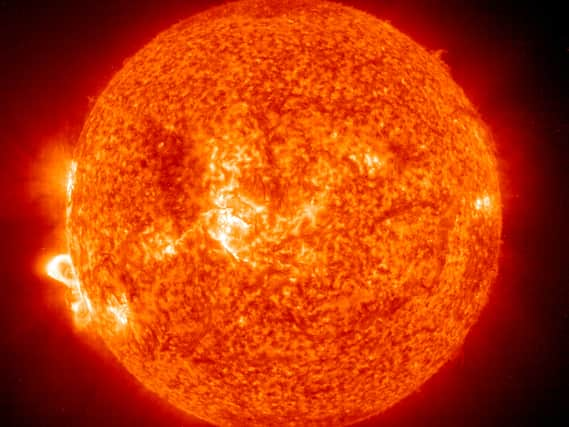Solar Storms: researchers say space weather can disrupt UK railways - but what could happen?


A rare solar storm could cause chaos in the UK by disrupting railways as it could trigger "powerful magnetic disturbances".
Researcher Cameron Patterson, a physics PhD researcher, said the "relatively rare" storms but need to be "taken seriously" by the rail industry.
Advertisement
Hide AdAdvertisement
Hide AdA study conducted at Lancaster University found the celestial events could disrupt the network's electrical systems and cause signals to switch from red to green, but Network Rail said it considered the risk to be "very small".
Solar storms, which are caused by high energy particles from the Earth after they are released in explosive outbursts from the sun have previously disrupted technology and power grids in Canada and in the Victorian era.
The team looked at how space weather events created geomagnetically-induced electrical currents which could cause rail signals to stop working by testing a computer model of the Preston to Lancaster section of the West Coast Main Line, as well as the Glasgow to Edinburgh line.
Mr Patterson said the study showed that "high-impact, low frequency" solar storms did pose risks, and the team confirmed that the next solar maximum is expected about 2025 or 2026 - but it could happen at any time.
Advertisement
Hide AdAdvertisement
Hide AdJim Wild, professor of space physics at Lancaster University urged the rail industry to consider the risks of these space weather events, and how to protect their services against them.
"In future, we could see space weather forecasting being used to make decisions about limiting railway operations if an extreme event is expected, just as meteorological forecasts are used currently," he said.
Martin Frobisher of Network Rail, which runs most of the country's rail network, said while the storms were theoretically a threat, the firm considered the storms to be a "very small risk".
"We need to focus our limited resources on higher priority issues such as climate change," he added.
Comment Guidelines
National World encourages reader discussion on our stories. User feedback, insights and back-and-forth exchanges add a rich layer of context to reporting. Please review our Community Guidelines before commenting.
